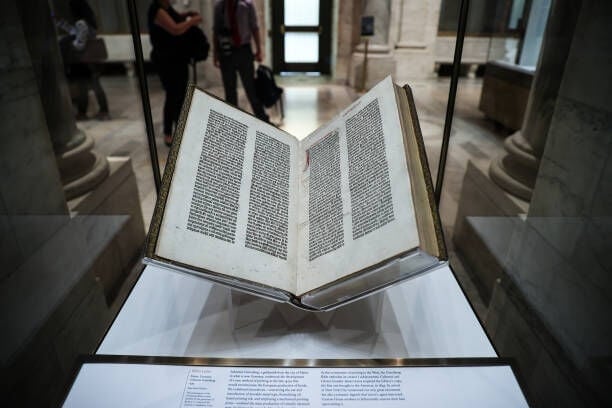Seeking God Before Seeking Wisdom
 Image by Getty
Image by Getty
For many of us, the easiest part of praying is asking God for the things that we need. We might pray for patience, for healing, or a solution to our financial struggles. And it is right that we pray for such things, as the Bible instructs us to make our requests known to God: "Do not be anxious about anything, but in every situation, by prayer and petition, with thanksgiving, present your requests to God" (Philippians 4:6). We might even try to make our requests more noble and less about ourselves by asking God to grow us in compassion, gentleness, or wisdom. Surely, God would never say ‘no’ to a request like this, right? He might, if our motives are out of alignment, or our requests are incomplete.
Seeking God First
What God wants most from us is for us to know Him, to love Him, and to honor Him. He calls us to Himself so that we may experience the joy of His love and His presence. And when we skip spending time with God for the sake of seeking Him and jump ahead to asking what we want from Him, we are missing an important aspect of a life shared with our Creator.
As David sings, “Take delight in the Lord, and he will give you the desires of your heart,” (Psalm 37:4), we understand that if we are seeking our desires before we seek God, we need to backtrack and start over. God is a good and generous Father, and He wants us to lack nothing, but He is more than just a means to an end. God Himself is our most treasured possession. Jesus affirms this truth, teaching “But seek first his kingdom and his righteousness, and all these things will be given to you as well.” (Matthew 6:33). God promises that He will supply our needs, but He will not do so apart from giving us His very self.
Solomon’s Request for Wisdom
We can learn much from Solomon, who famously requested wisdom from God, which God cheerfully and generously granted:
That night God appeared to Solomon and said to him, “Ask for whatever you want me to give you.”
Solomon answered God, “You have shown great kindness to David my father and have made me king in his place. Now, Lord God, let your promise to my father David be confirmed, for you have made me king over a people who are as numerous as the dust of the earth. Give me wisdom and knowledge, that I may lead this people, for who is able to govern this great people of yours?”
God said to Solomon, “Since this is your heart’s desire and you have not asked for wealth, possessions or honor, nor for the death of your enemies, and since you have not asked for a long life but for wisdom and knowledge to govern my people over whom I have made you king, therefore wisdom and knowledge will be given you. And I will also give you wealth, possessions and honor, such as no king who was before you ever had and none after you will have. (2 Chronicles 1:7-11).
We might observe that by asking for wisdom, Solomon was also blessed with wealth and honor. But we must not take this to mean that asking for the ‘noble’ gift is a means to also receive a more earthly gift. God was not rewarding Solomon for supplying a correct answer to His “ask for anything” question. Rather, He was entrusting Solomon with greater stewardship, knowing that Solomon had both the right heart and the right wisdom to be a good steward and a good king (which, for most of his reign, he was).
But more importantly, we must also consider the verses leading up to this exchange between Solomon and God:
“Solomon son of David established himself firmly over his kingdom, for the Lord his God was with him and made him exceedingly great… Solomon went up to the bronze altar before the Lord in the tent of meeting and offered a thousand burnt offerings on it.” (2 Chronicles 1:1,6)
And the account of this event recorded in 1 Kings adds another detail, saying “Solomon showed his love for the Lord by walking according to the instructions given him by his father David, except that he offered sacrifices and burned incense on the high places.” (1 Kings 3:3)
We see in these verses that God was with Solomon, and that Solomon responded with an outpouring of love for God in response, which he expressed in the form of burnt offerings. Even before God bestowed wisdom and wealth on Solomon, Solomon pursued God with his whole heart.
So too, when we find that God is silent and that our requests seem to go unanswered, God may be asking us to pause and reflect on who He is, and all that He has done. He may be inviting us to meditate on His power, His holiness, and His love. And through our waiting, He may be growing us in humility and wisdom as we recognize the sufficiency of His grace, even if we have nothing else.
Related posts

The Reasons Why Some Numbers Are Superstitious
The Reasons Why Some Numbers Are Superstitious

Dog Owner Hacks
Owning a dog can come with many different challenges that you haven't faced or thought of before. These dog owner life hacks are sure to help you and your dog overcome them with ease. From how to trav


